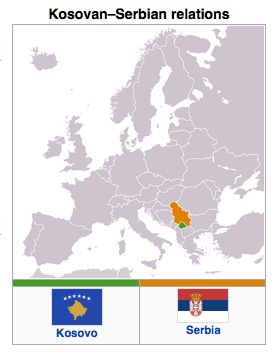Serbia Unblocks Participation At Regional Forums
By Bojana Barlovac
Belgrade has agreed to take part in international meetings alongside Kosovo with a footnote included in the accompanying documents and not the nameplate.
Serbia’s government adopted on Sunday evening an instruction to state officials regulating their participation in events also attended by Kosovo representatives.

In February this year, Kosovo and Serbia agreed a complex formula under which Kosovo can take part in regional forums as “Kosovo*” with a footnote, rather than be represented by the UN Mission in Kosovo, UNMIK.
But so far the agreement has not been implemented, with Serbia either boycotting or walking out of meetings to which Kosovo was also invited.
“The instruction ensures that the interim institutions of the self-government in Pristina will be represented asymmetrically, and envisages that besides the nameplate of Kosovo (Kosovo with an asterisk), in all accompanying documents the text of the footnote should be noted in the first mention in every single document,” the government’s document reads.
The footnote reads that “This designation is without prejudice to positions on status, and is in line with UNSCR 1244/99 and the ICJ Opinion on the Kosovo declaration of independence”.
Kosovo declared independence from Serbia in 2008. But Serbia does not recognise the new country and Belgrade has refused to participate at any conferences where Kosovo is represented as an independent country with its own state symbols.
According to the government, the new instruction was adopted with a view to repairing the damage caused by the absence of state bodies from regional forums.
Serbian Prime Minister Ivica Dacic said that Serbia had bigger problems than whether the footnote is in documents or on nameplates.
He explained that the problem with the representation of Kosovo arose from the lack of clarity in the Brussels deal, which did not specify whether the footnote should be on a nameplate or not.
“What do we get by not participating in those meetings?” Dacic asked in a radio show Kaziprst on B92.
“Serbia will not sacrifice itself because of the asteriks and footnote,” the prime minister added.
